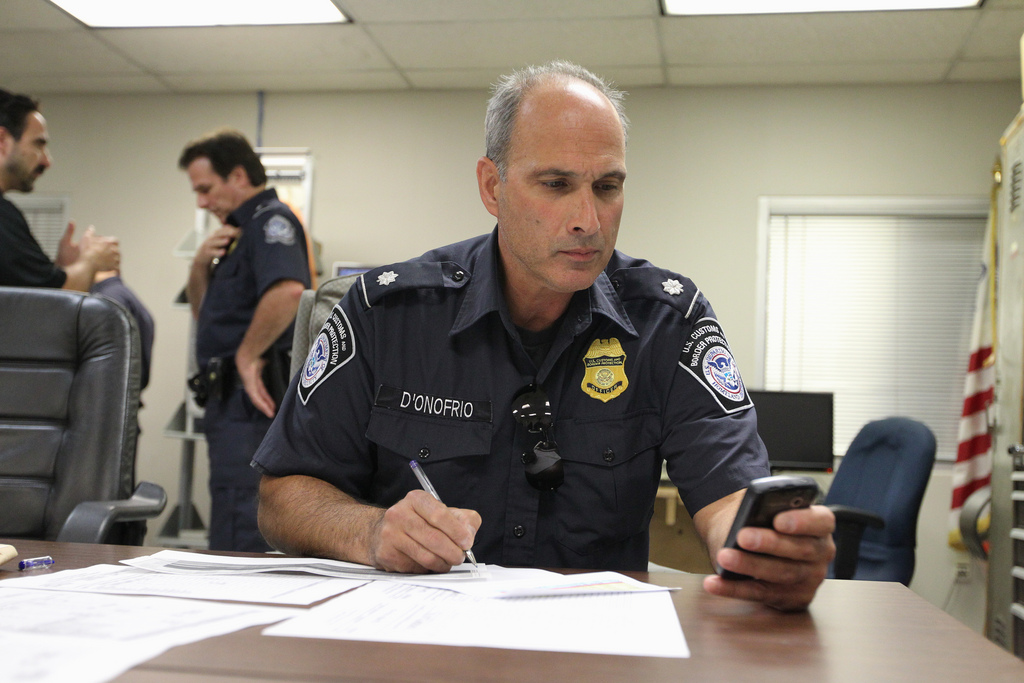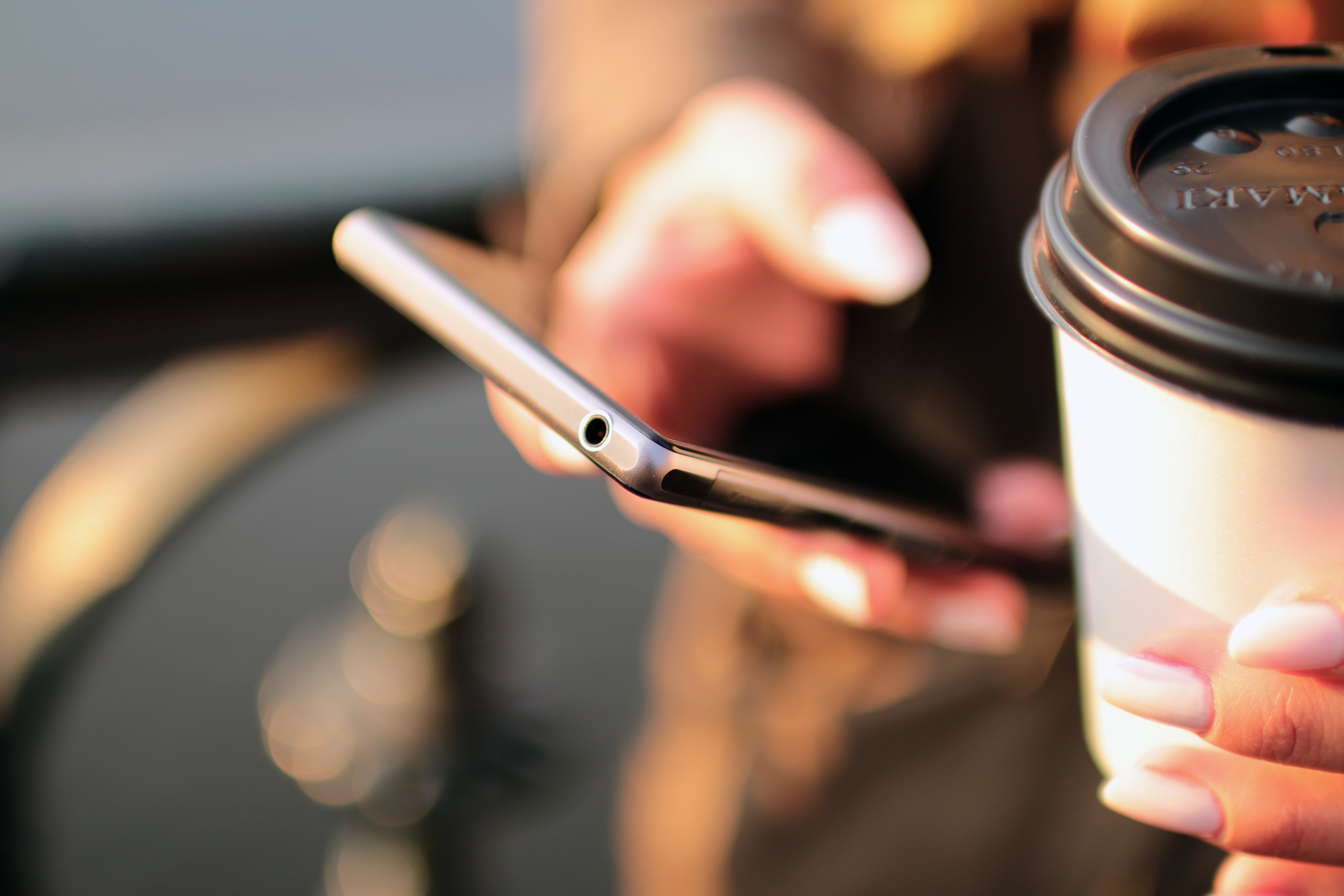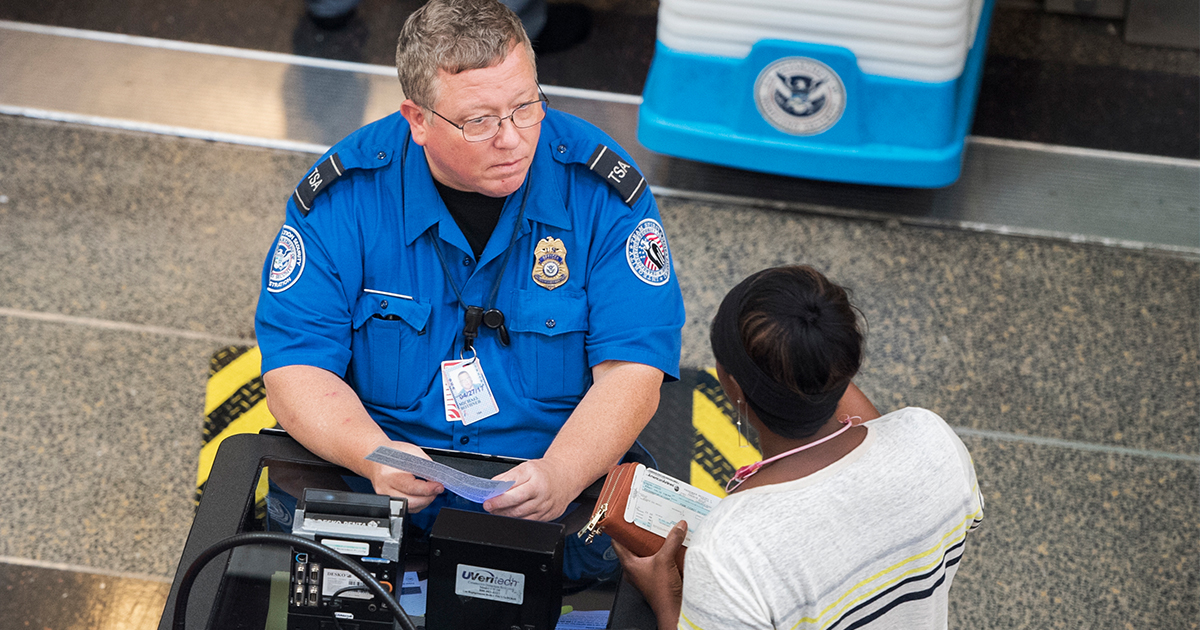What to Do When Border Agents Ask for Your Phone

By:
What do you do if the Border Patrol tries to search your phone?
That's the question on the minds of U.S. citizens as the practice of searching the electronic devices of people entering the country becomes more commonplace. It's already happened to a filmmaker and a NASA scientist, and it's something U.S. Muslims in particular are likely to be subjected to upon returning to the country from overseas.
 Donna Burton/U.S. Customs and Border Protection - flickr.com
Donna Burton/U.S. Customs and Border Protection - flickr.com
"In 2015, there were around 4,000, 5,000 device searches; in 2016, nearly 24,000 device searches," ACLU staff attorney Esha Bhandari told Democracy Now! on Thursday.
U.S. Customs and Border Protection (CBP) agents have the legal authority to inspect your devices at the border.
The Fourth Amendment protects U.S. citizens from "unreasonable searches and seizures," but that protection is superseded at the border by federal statutes allowing border agents to "conduct a search, without warrant, of the person, and of the personal effects in the possession of any person seeking admission to the United States."
Those powers were upheld by the Supreme Court in 1976 and 2004, though the court has not specifically addressed the searching of now-ubiquitous smartphones.
There are some options available to U.S. citizens who don't want to turn over their personal information.
 Pexels - pexels.com
Pexels - pexels.com
“If you're a U.S. citizen, border officials cannot force you to unlock your phone, but they may detain you for a limited time if you refuse,” Emma Llansó, director, Free Expression Project of the Center for Democracy & Technology, told the Los Angeles Times. “They can't detain you indefinitely or deport you if you're a citizen.”
Border agents can also hold your device for a period of time if they see fit, according to the ACLU, including for purposes of a forensic search.
"Barring 'extenuating circumstances,'" the ACLU explains, border agents "claim the authority to hold onto your device for five days — though 'extenuating circumstances' is an undefined term in this context, and this period can be extended by seven-day increments. We’ve received reports of phones being held for weeks or even months."
 Tom Williams/CQ Roll Call via AP Images - apimages.com
Tom Williams/CQ Roll Call via AP Images - apimages.com
The ACLU advises travelers to keep their devices encrypted, clean, and free of compromising information. That way, if you're forced to unlock your device, the agents will have little to work with.
One U.S. senator is working to provide citizens more protections at the border. Ron Wyden, a Democrat from Oregon, plans to introduce legislation to curtail the phone searching powers next week.
"I think it is time to update the law," he told NBC News.
For now, travelers should take steps to protect their data — and leave whatever they don't want others to see off their phone.
